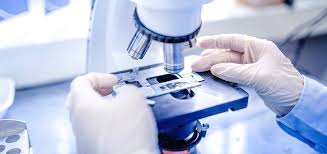
Staff Member #1
Biography of instructor/staff member #1

Clinical biochemistry - a clinical diagnostic science, whose tasks include the development and use of standard methods of diagnosis of the disease, flow monitoring and control over its treatment from the standpoint of biochemistry. The main provisions, which allow us to consider the disease with biochemical positions, include: - many diseases are genetically determined; - for any disease violate the structure and function of certain biomolecules, changes their number; biomolecules any class, found in the cell, may be involved in the process (primarily or secondarily); - diseases can be caused by an excess or deficiency of certain molecules (vitamins, hormones); - various biochemical mechanisms may lead to similar pathological, clinical and laboratory manifes-tations. Clinical Biochemistry studies the molecular basis and biochemical mechanisms of disease. This greatly facilitates the correct diagnosis, treatment options and methods to prevent diseases. Reliable changes of biochemical parameters in diseases appear much earlier, than their clinical signs and subjective symptoms (in the premorbid stage). Therefore, appointment and interpretation of biochemical research - it is an integral part of medical practice. Correct interpretation of the research results is only possible with sufficient knowledge of the biochemical changes in different states of the body and the mechanisms occurring disorders. .

Biography of instructor/staff member #1

Biography of instructor/staff member #2
The Open edX platform works best with current versions of Chrome, Firefox or Safari, or with Internet Explorer version 9 and above.
See our list of supported browsers for the most up-to-date information.